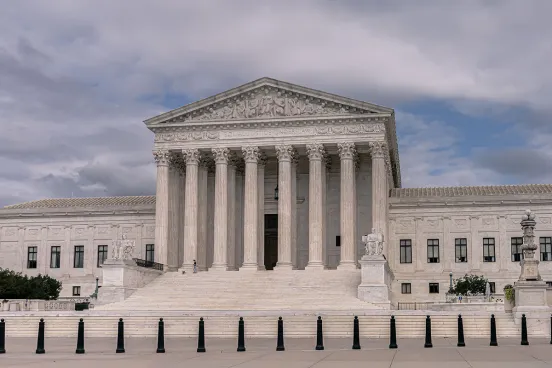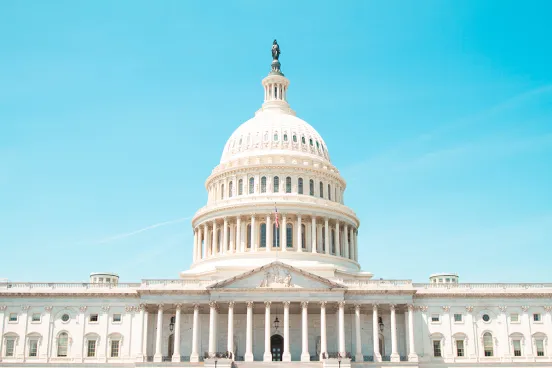
Samuel Bagenstos is a professor of law at Michigan. A longer version of this article appears in the forthcoming A Nation of Widening Opportunities? The Civil Rights Act at 50 (Ellen Katz & Samuel Bagenstos, eds.). The collection grew out of a 2013 conference of the same name, organized by Professors Katz and Bagenstos, which drew professors from a dozen of the nation’s top law schools and featured discussions on a range of topics, from affirmative action to the concept of animus.
Throughout the civil rights era, strong voices have argued that policy interventions should focus on class or socioeconomic status, not race.
At times, this position-taking has seemed merely tactical, opportunistic, or in bad faith. Many who have opposed race-based civil rights interventions on this basis have not turned around to support robust efforts to reduce class-based or socioeconomic inequality. That sort of opportunism is interesting and important for understanding policy debates in civil rights, but it is not my focus here.
I am more interested in the people who clearly mean it.
For example, President Lyndon Baines Johnson—who can hardly be accused of failing to support robust race-based or class-based interventions—advised Dr. Martin Luther King Jr. after Congress adopted the Voting Rights Act that the race-neutral, class-based Great Society programs had to be counted on to eliminate race inequality from that point forward. Calls for class-not-race interventions are likely to grow stronger during the next few years.
This, then, seems an opportune time to examine the class-not-race position that underlies them.
Many of the reasons offered for the class-not-race position are essentially strategic. These arguments assert not that class-not-race is superior as a matter of principle or first-best policy, but that approaches that target class instead of race are more likely to succeed in the political or legal process than are approaches that focus directly on race.
This is most apparent in the context of affirmative action.
Many of the advocates of class-based affirmative action—particularly after the Supreme Court decisions making race-based affirmative action more difficult to defend—believe that targeting class rather than race will place the practice of affirmative action on stronger legal grounds. The legal-doctrinal argument is certainly a key talking point for some of the most prominent advocates of class-based affirmative action.
Other strategic arguments for the class-not-race position are political rather than legal in nature. William Julius Wilson emphasizes many of these points in The Truly Disadvantaged (University of Chicago Press, 1987, 2012). Policies that aim overtly at protecting or advancing the interests of particular, disadvantaged racial groups may be especially vulnerable politically.
As Wilson makes explicit, these arguments tie rather directly to arguments among social policy experts regarding targeted versus universal social-welfare policies. Many experts argue that social-welfare policies are more politically durable when they are framed in universal terms.
Means-tested programs like welfare (or, perhaps now, food stamps) are understood to be more vulnerable than universal social insurance programs like Social Security. Universal programs are more easily understood in solidaristic terms, as a reciprocal covenant among all citizens. As a result, solidaristic and reciprocal principles of distribution make sense—one deserves to receive benefits because one is a citizen and has contributed to the system.
But the public expects one to prove deserving of targeted benefits more specifically—if an individual is receiving government benefits to which other individuals are not entitled, the public expects the beneficiaries to demonstrate that they really deserve them.
As a result, targeted programs are administered in a much more stingy fashion than universal ones. And scandals regarding alleged waste, fraud, and abuse arise far more easily in targeted programs, and are far more likely to delegitimize those programs than they are to delegitimize universal programs of social insurance.
This is a very controversial issue in the social policy world.
Professors Peter Schuck and Richard Zeckhauser, authors of Targeting in Social Programs (Brookings Institution Press, 2006), make a strong theoretical argument that targeted programs more efficiently achieve their aims and therefore are more likely to draw political support than are less efficient universalist ones. Basic public choice theory also suggests that targeted programs will generate fervent support from their beneficiaries, while the broad spreading of the costs will dampen opposition from those who do not receive the benefits. (This point seems more plausible when the beneficiaries are not as socially and politically disempowered as the beneficiaries of race-based interventions, however.) And the empirical evidence on targeting versus universalism is mixed. Social Security is, to be sure, far more politically stable than was welfare. But when we look at smaller programs for classes of poor people, the targeted ones that focus on people with disabilities or children in poverty have, on occasion, seemed more resilient than the broader universalist ones.
In the race-versus-class context as well, the strategic argument for universalism is not obviously correct. For one thing, class-based interventions (like class-based affirmative action) may readily come to be understood in the public mind as really targeted toward minorities.
That’s particularly true because in many cases the alternative to race-based interventions is not universal social insurance; it is a policy that really is targeted to disadvantaged people, just a bit more broadly than to minorities.
Think about welfare in this regard, and the general axiom that programs for the poor are poor programs. One reason programs for the poor are politically vulnerable is that they are often associated in the public mind with racial minorities. Efforts to target class-based disadvantage as a way of eliminating racial disadvantage often are understood as being really about race and provoke political resistance accordingly—a point former U.S. Housing and Urban Development Secretary George Romney learned when his efforts to achieve economic integration in housing provoked fierce resistance from white suburbanites who feared that racial integration would be the result.
William Julius Wilson’s critique of the Great Society is apt here. Wilson argued that the Great Society’s reliance on means-tested anti-poverty programs associated it with minorities and made it politically vulnerable. Unless efforts to focus on class rather than race take the form Wilson’s effort does—by employing truly broad-scale economic development programs—they will likely remain politically vulnerable as targeted programs. And the truly universal proposals urged by Wilson and others have virtually no hope of being achieved in our current political environment, in which austerity sets the terms of economic policy debates.
Class-based policies, then, may not be especially strong politically. And there may be circumstances in which programs targeted at racial minorities are quite strong politically—precisely because they appeal to a shared commitment to equal opportunity.
To the extent that race-focused programs are understood as overcoming the particular injustice of discrimination or the legacy of slavery and segregation, many people will see that disadvantage as not being the fault of the beneficiaries (unlike poverty in general). In those circumstances, candid use of race will be politically superior to the use of class as a proxy for race.







